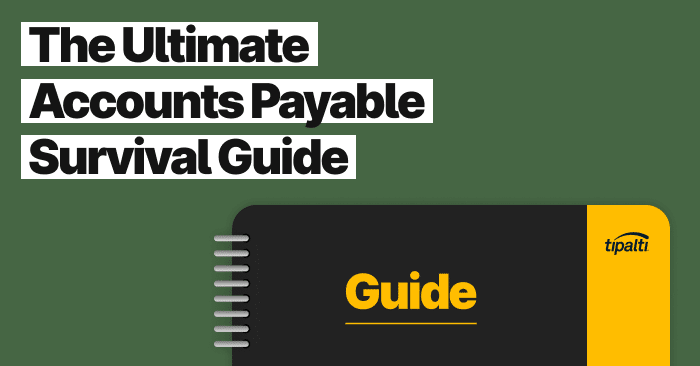
See how forward-thinking finance teams are future-proofing their organizations through AP automation.
Fill out the form to get your free eBook.

Today, the finance function has more responsibilities than ever. In high-growth businesses, every operation—both front and back-office—is inexplicably tied to investment versus reward. To survive the uncharted road ahead, the modern, forward-thinking finance team has to future-proof their organization for success. Download the guide to discover: – The untamed wilderness of finance – How to forge an accounts payable path – How to strategize your next move – The ultimate accounts payable survival tool – How real-life survivalists scaled their businesses
Retail ERP vs Traditional ERP
A retail ERP system handles omnichannel or multi-channel retailers’ specific business processes and needs. In contrast, a traditional ERP system is designed to meet general business needs or the requirements of companies in other industries like manufacturing or construction. Retail ERP software gives the retailer essential modules relating to the retail industry workflow.
Some ERPs, like Brightpearl, are designed as retail ERPs. If you’re considering the retail version of a traditional ERP system, you have more choices. ERP systems Acumatica, NetSuite, Microsoft Dynamics 365, SAP Business One, and QuickBooks POS, integrated with QuickBooks Desktop accounting software, offer retail industry solutions.
Consider buying QuickBooks products and services from a value-added reseller (VAR) with POS and retail experience to optimize a QuickBooks retail solution.
Retail and traditional ERPs are integrated to work with add-on AP automation and global mass payments software for retailers. For example, Tipalti software has enabled Touch of Modern and other retailers to handle accounts payable and payments workflows and expand with limited staffing.
The Benefits of Retail ERP
Ten benefits of retail ERP include:
- Real-time visibility, reports, and payment processing
- Integrated omnichannel front-end and back-end processes
- Customer data
- eCommerce and stores with integrated point-of-sale (POS)
- Demand forecasting tools
- Procurement, inventory replenishment, and supply chain management
- Real-time inventory management
- Pricing solution
- Add-on automation of processes for efficiency and cost savings
- Analytics for data-driven decisions
Retail ERP is a real-time software system customized to connect and integrate the business processes specifically used in retail operations. With retail ERP, retailers can streamline, automate, and manage front-end business operations and back-office business processes much more efficiently. This custom-made Enterprise Resource Planning (ERP) software ultimately helps retailers improve their bottom line.
Omnichannel includes sales from physical retail stores (brick-and-mortar), eCommerce, call centers, and other online sales channels that may require warehouses and inventory management for order fulfillment and merchandise returns.
Enhance your retail ERP with automation
Tipalti provides AP efficiency and functionality with touchless invoice processing solutions for business cost savings.
Top Retail ERP Software Solutions
Retail ERP systems are designed for retail or part of traditional ERP systems. They include add-on third-party integrations to enhance the ERP for retailers.
ERP Systems That Can Accommodate Retail-Specific Needs
The best ERP systems for retailers include:
- Brightpearl
- SAP Business One
- Acumatica Retail-Commerce Edition
- NetSuite for Retail
- Microsoft Dynamics 365 Commerce for Retail
- QuickBooks POS integrated with QuickBooks Accounting Software
1. Brightpearl
Brightpearl is a leader in retail ERP software designed for omnichannel retailers and wholesalers. Brightpearl describes its software as a Digital Operations Platform that can process thousands of orders every day. Brightpearl ERP provides eCommerce integrations with BigCommerce, Magento, Shopify, Amazon, eBay, and Walmart.
Brightpearl is essentially the Sage retail version. Tipalti has a direct partnership with Brightpearl. Brightpearl experts can help your company with project management for Brightpearl implementation.
Brightpearl functionality provides:
- Real-time data
- Sales order management
- Inventory management
- Inventory and demand planning
- Shipping and fulfillment
- Warehouse management
- Retail accounting
- Purchasing and supplier management
- Workflow automation
- Reporting and business intelligence
- Payments
- CRM
- POS
- Plug and Play integrations for new channels and functional tools
This analysis excludes the highest-end ERP software like SAP ERP, which offers industry-specific retail ERP software besides serving many other industries. Large retailers like Home Depot and Walmart have used SAP as part of their retail software solutions to operate and manage their businesses and make informed decisions.
2. SAP Business One
SAP Business One is cloud-based ERP software for SME customers that works with integrated third-party app solutions. As a SAP Business One user, your retail company can choose to add retail industry-specific functionality to the Business One cloud ERP software.
Additional functionality from these retail software integrations include:
- eCommerce and omnichannel
- Back office, online, and in-store operations
- Point of sale
- Payment processing
- Inventory management
- Analytics and reporting
Tipalti’s unified platform of finance automation software products is another type of third-party integration for SAP Business One for businesses to consider when using SAP Business One.
3. Acumatica Retail-Commerce Edition
Acumatica retail and eCommerce ERP is cloud-based multi-channel software branded as its Retail-Commerce Edition for small businesses and mid-sized companies. Acumatica claims that its Retail-Commerce Edition was “built for eCommerce and retail.” Acumatica offers 24/7 customer support through Acumatica Cloud ERP.
The Acumatica Retail-Commerce Edition product offers:
- Financial management
- Customer relationship management (CRM)
- Warehouse management system (WMS)
- Sales order management
- Customer self-service portal
- Reporting, dashboards, and data analysis toolkit
- Inventory management
- ERP business intelligence and analytics in Acumatica
- Purchase order management
4. NetSuite for Retail
NetSuite offers a complete module for omnichannel commerce, called NetSuite for Retail, as part of its traditional cloud ERP system. NetSuite for Retail is for B2C and B2B commerce and for multi-channel and multi-location order management. It provides real-time business and customer visibility across all sales channels.
NetSuite for Retail features and uses include:
- eCommerce
- Point of sale (POS) for brick-and-mortar stores
- Call center
- Mobile
- Order management
- CRM and marketing
- Real-time Inventory
- Financials and business intelligence
- Customer service
5. Microsoft Dynamics 365 Commerce for Retail
Microsoft Dynamics 365 is modern cloud ERP software for multiple industries. The Microsoft Dynamics 365 Commerce solution for mid-sized to large omnichannel retailers is scalable, accommodating retail business growth and handling global business issues. Microsoft Dynamics 365 Commerce includes AI-driven features that improve customer relationships, customer satisfaction, and engagement.
Microsoft Dynamics 365 Commerce includes these key features:
- End-to-end unified omnichannel and retail platform
- Add-ons for AI-driven intelligent shopping recommendations, including real-time eCommerce
- Real-time inventory visibility
- Native support for omnichannel purchasing
- Seamless and connected customer journeys
- Enabling customers to buy online and make returns in stores
- Unified view of customers across channels
Microsoft Dynamics 365 Commerce unifies eCommerce, stores, call centers, back office, and other emerging channels as an omnichannel solution. Retailers using Microsoft Dynamics 365 Commerce include Columbia and Dr. Martens.
6. QuickBooks POS integrated with QuickBooks Accounting Software
Startups and small to mid-market businesses with smaller budgets can consider QuickBooks Point of Sale (POS) integrated with on-premises and optionally remotely hosted QuickBooks Desktop accounting software as a retail management solution. QuickBooks POS natively syncs some fields to QuickBooks Desktop as an End-of-Day procedure from the menu. If you want to use QuickBooks Online accounting software, you can integrate a third-party add-on app that syncs QuickBooks POS with QuickBooks Online in near real-time.
Why is Retail ERP Important?
A retail ERP system is important for a retail business because the software operates in real-time and provides the functionality needed for retail business processes and workflows. Retailers can review profitability at the SKU or item level.
Retail ERP lets employees check the status at any time, including inventory levels and provides ERP features for forecasting sales demand. Inventory status in real-time makes it easier for retailers to keep inventory in stock and avoid missed sales.
With retail ERP, retail companies:
- Order inventory
- Conduct business through multiple sales channels
> including physical retail stores and integrated web stores for online retailers
- Optimize customer experience
- Contact customers
- Perform the functions of:
- Inventory management
- Accounting
- Planning
- Reporting
- Business intelligence
- Financial management
- Human resources (HR) functions
Conclusion – Retail ERP Software
We explained the meaning of retail ERP software, the role of ERP in retail and its benefits for the retail industry, what differentiates retail ERP systems like Brightpearl from traditional ERP systems, and why retail ERP is important. We also provided examples of retail ERP systems and traditional ERP systems with industry-specific retail solutions.
Choosing the best ERP for your retail business depends on whether you accept the premise that an ERP system designed for retail with its multiple sales channels is the best solution. Or would you widen your consideration of systems to include industry-specific retail solutions from traditional ERP companies to meet your business needs?
See how end-to-end AP automation can transform your financial processes
Tipalti helps finance leaders eliminate manual payables, increase global reach, and confidently scale.




